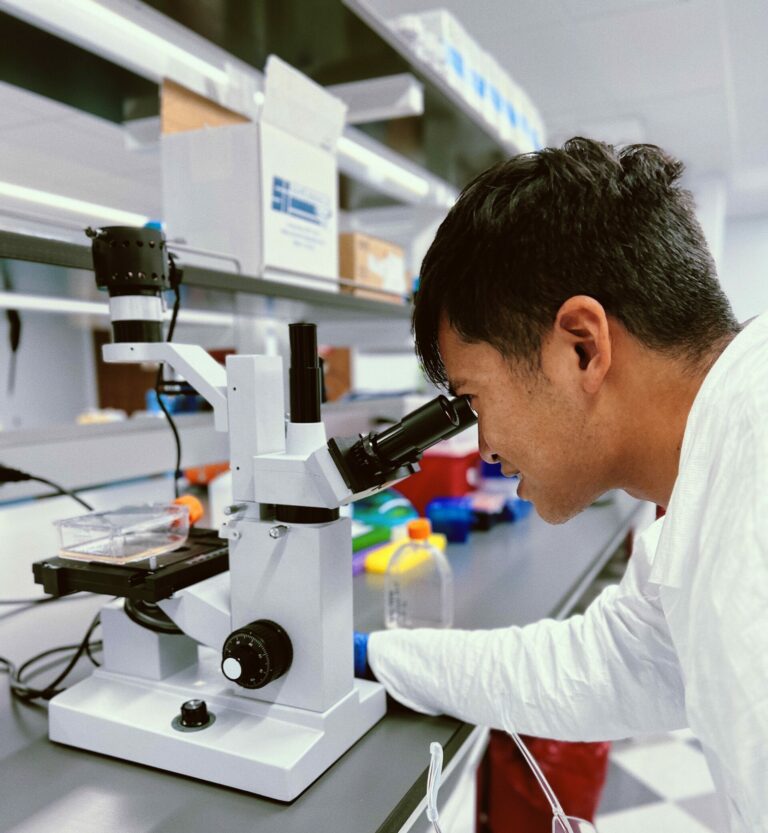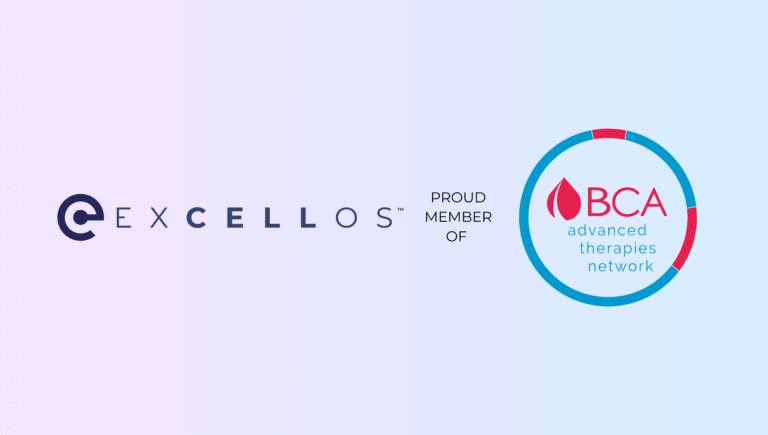Scientists at GSK in Waltham, Massachusetts, are using Excellos-sourced T cell starting material for their preclinical evaluation of an anti-PD1 antibody.
Programmed Cell Death Protein-1 (PD-1) is a transmembrane protein recognized for its role in regulating T cell activity. PD-1 and its analogs are often called “checkpoint inhibitors” because they act as a checkpoint to curb runaway immune responses. Unfortunately, cancer cells can take advantage of this inhibitory mechanism and use it to evade the body’s immune defenses.
Anti-PD1 Antibodies in Therapies
Over the last few years, several therapies have been developed that use anti-PD1 antibodies to block the activity of PD-1 and other checkpoint inhibitors in cancer patients. Such therapies have demonstrated varying degrees of success in helping the human immune system detect and attack cancer cells. However, not all patients respond to or tolerate available anti-PD1 therapies, demonstrating the need for alternative, more optimized versions.
Dostarlimab is an anti-PD1 antibody therapy granted accelerated approval last August by the FDA in recognition of its efficacy against endometrial cancer in Phase 1 clinical trials. Given the early indications of success, the therapy is currently being evaluated further for its effectiveness against endometrial cancer, in particular to help patients with advanced solid tumors.
Preclinical Evaluation
As part of the preclinical evaluation phase for dostarlimab, GSK-based researchers investigated the drug’s ability to enhance immune function in both in vitro cellular assays and in vivo animal models. The study consisted of a multi-pronged approach that included evaluating binding kinetics, ligand interaction, T cell functional activity, and anti-tumor activity in animal models.
The research group first verified that their new antibody could bind human and cynomolgus monkey (macaque) PD1 with high affinity and effectively block the interaction of PD1 with its natural ligands. They also showed that dostarlimab was able to bind PD-1 expressed on human and monkey cell surfaces in vitro.
Having successfully characterized the new anti-PD1 antibody in regard to binding kinetics and specificity, the next step was to determine whether dostarlimab could effectively enhance T cell activity in the presence of PD1. For their in vitro T cell assays, the researchers obtained starting materials in the form of Excellos sourced healthy donor leukopaks. Excellos recently launched as a fully independent CDMO with exclusive access to the extensive donor network at the San Diego Blood Bank (SDBB) and its collection centers.
CD4+ T cells were isolated from leukopak derived healthy human donor PBMCs, and dendritic cells were isolated from a different donor leukopak via monocyte isolation and differentiation. Dendritic cells (1 × 104/well) and allogeneic CD4+ T cells (1 × 105/well) were incubated in the presence of various concentrations of dostarlimab or a negative control ligand. After 48 hours, T cell activation was quantified based on IL-2 secretion levels. The scientists found that dostarlimab significantly enhanced T cell activation and function in an antigen-specific manner in vitro. The drug did not demonstrate T cell agonist activity.
In order to ascertain whether dostarlimab would make a good clinical candidate, the GSK team would also need to evaluate anti-tumor activity in vivo. They elected to use a humanized mouse model to study tumor progression, and a cynomolgus monkey model to evaluate drug tolerance.
In both animal models, the results were very encouraging. NOG-EXL mice were engrafted with CD34+ human hematopoietic stem cells to establish a humanized immune system. Dostarlimab treatment resulted in a 62% inhibition of tumor growth in a lung cancer model, and a 53% inhibition of tumor growth in a breast cancer model. These results were accompanied by a reduction in the percentage of regulatory T cells, and a trend toward an increase in tumor infiltrating CD8+ cells.
In cynomolgus monkeys, dostarlimab behaved like a typical monoclonal antibody in terms of dose clearance kinetics. The drug was well tolerated, with no unexpected deaths, drug related clinical signs, or effects on body weight.
Overall, the preclinical evaluation studies for dostarlimab were very positive, resulting in its recommendation for human clinical trials. In light of dostarlimab’s subsequent accelerated approval, scientists have high hopes that this new anti-PD1 antibody will offer a treatment alternative to cancer patients who previously had few promising options.
Excellos is proud to support innovative cell and gene therapy research through exclusive access to one of the largest and most diverse donor pools available. Please visit the Excellos website to learn more about our immunotherapy products and services.
References
- Kumar S, et al. Preclinical characterization of dostarlimab, a therapeutic anti-PD-1 antibody with potent activity to enhance immune function in in vitro cellular assays and in vivo animal models. mAbs (2021) 13:1, 1954136, https://doi.org/10.1080/19420862.2021.1954136

